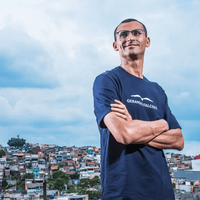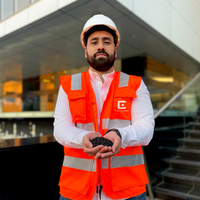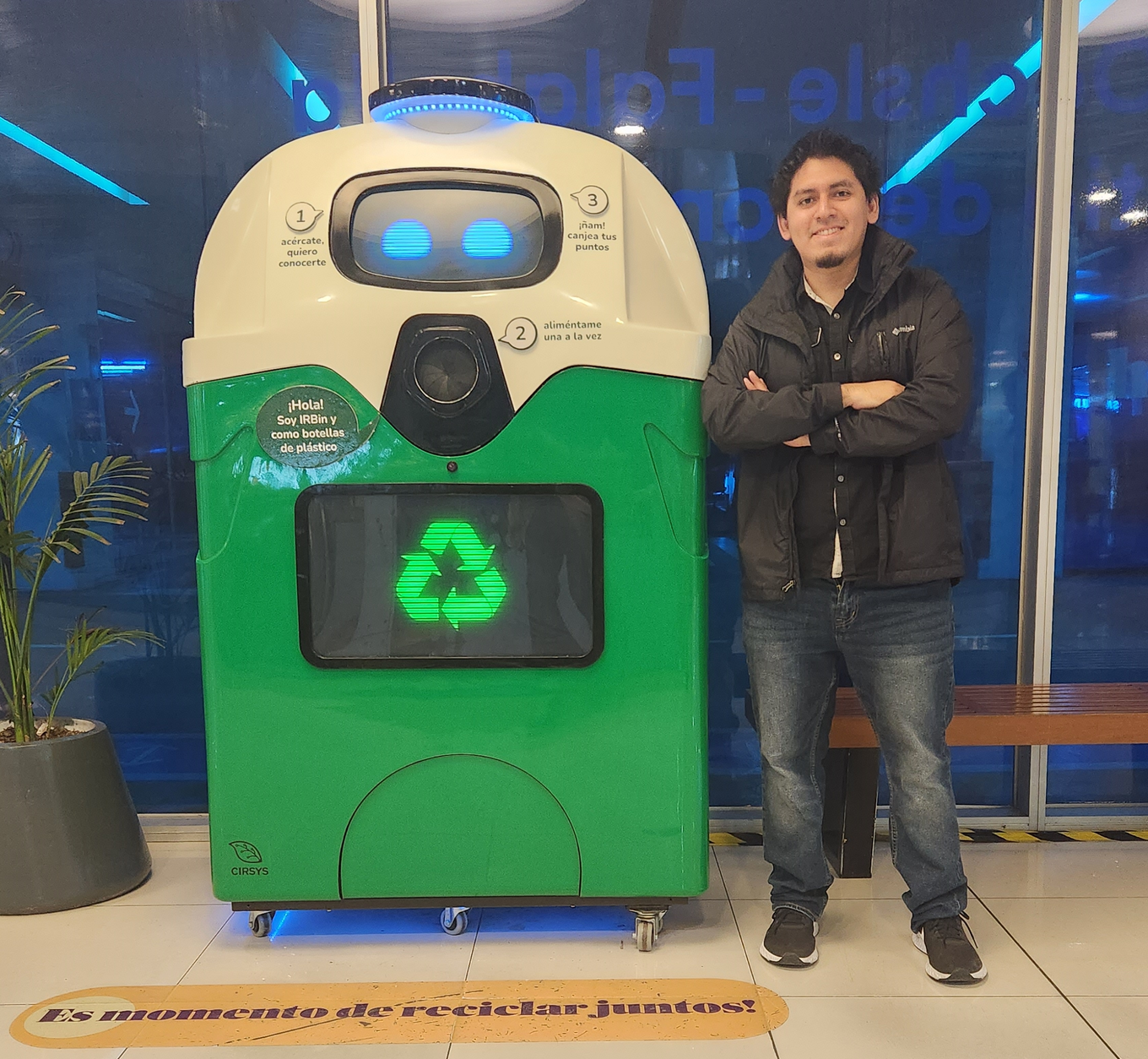In Latin America and the Caribbean,
541,000 tons of trash were generated daily in 2018, according to a UN
Environment report. That amount is expected to rise to 671,000 tons of daily
waste by 2050 in the region. Of that amount, one-third goes to landfills that
do not protect the environment. According to data from the Inter-American
Development Bank (IDB), the recycling rate is only 4.5% despite the fact that
19% of waste is material with great recycling potential. Reducing open dumps is
directly related to six of the 17 Sustainable Development Goals.
Peruvian Miguel Adolfo Ángeles, a
mechatronics engineer from the Pontificia Universidad Católica de Perú,
believes in a more sustainable world. To make it a reality, he created Cirsys,
a start-up of technological solutions with social and environmental impact.
With the aim of encouraging waste collection in his country, he created IRBin in 2019, a robot that uses artificial intelligence to promote bottle recycling.
For this technological breakthrough that promotes the circular economy, Ángeles
has been chosen by MIT Technology Review in Spanish as one of the winners of
Innovators under 35 Latin America 2020.
With its own algorithms, the
machine created by this engineer interacts with people and learns to recognize
different types of waste. This process allows him to educate the population in
a playful way to encourage the habit of separating and recycling garbage. IRBin
is placed in shopping malls and supermarkets to combat the "little
ecological and recycling culture in the region," the young man
explains.
IRBin is trained to recognize
plastic bottles, glass bottles, and organic waste, but can be adapted to
identify other reusable waste. This robot facilitates an efficient method of
bottle recovery, according to its creator, by segregating the waste. Recyclers
benefit from the return of the material and users who interact with IRBin are
rewarded with sweepstakes and discounts.
So far, the social robot is present
in several busy places in Lima. It has managed to recycle more than 10 tons of
bottles and more than 60% of users return their waste to the machine. Ángeles
is now trying to expand the type of places where IRBin can be placed, while
working to bring this innovative system that encourages the recycling of
bottles and other reusable waste to other cities in Peru.




